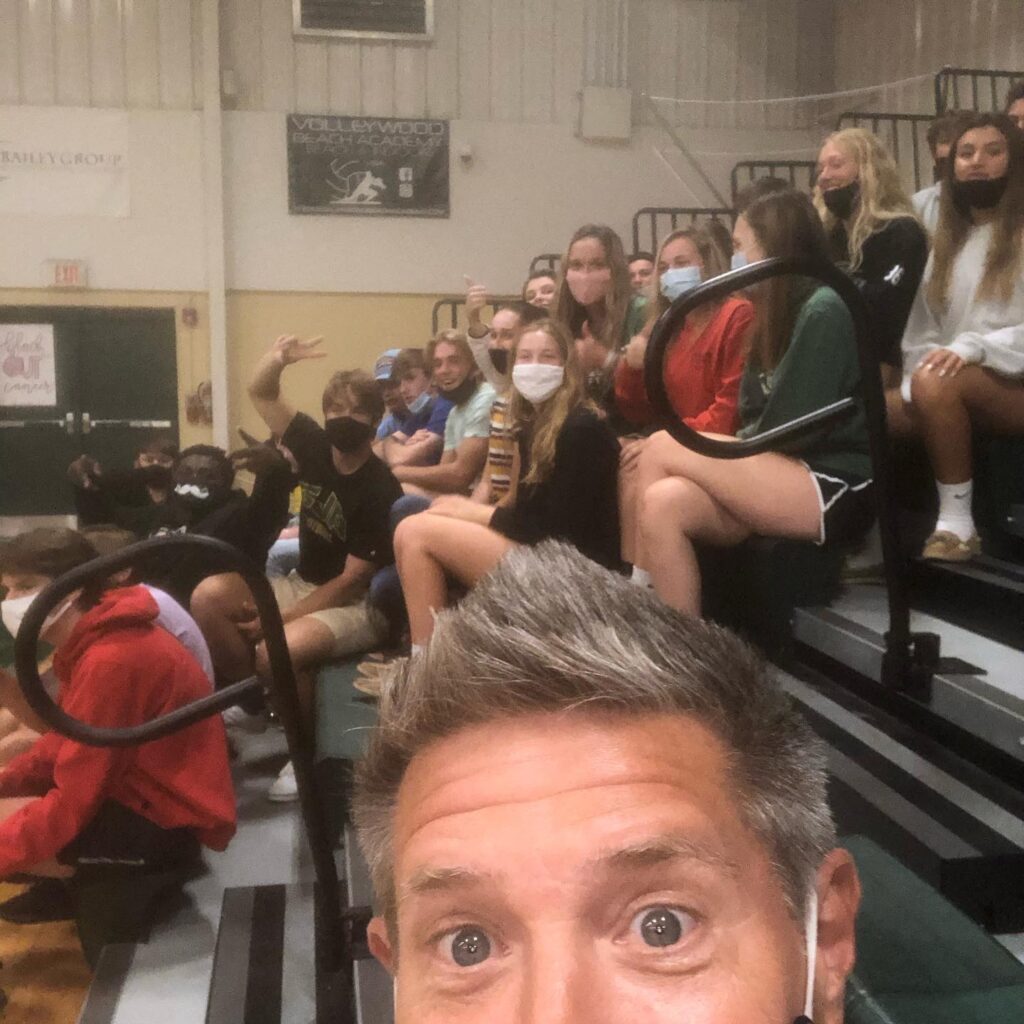I was that student floating across the green spaces of Flagler College finding a tree to place my back against. Once the long solitary figure of Dr. Proctor stopped to ask me what I was reading. He seemed to nod in approval when I told him Robert Penn Warren and the Southern poets. https://www.flagler.edu/ Much of the scene defines my time getting a BA in English. After getting the MA in Literary Criticism, I realized the time for poetic revery had ended, and it was time to teach. I walked toward an interior classroom at the University of North Florida. https://www.unf.edu/ With duffel in hand, as I approached the classroom, I noted the door was open and 25 adult faces were staring back at me from over their shoulders. Without intention I was steered into the neighboring bathroom. I leaned into the counter, looked myself in the mirror, and insulted my own cowardice. I walked into the classroom, began speaking to my students, taught for 20 years, and loved the profession.
My experience as a teacher is not unique in St. Johns County. All teachers are thrust into a classroom with the tools needed to succeed while each new teacher is with his or her own portion of impostor’s syndrome. As each year passes, these teachers reflect on what did and didn’t work making those changes necessary for the following academic year. Having taught among these professionals, I vouch for the schools in St. Johns county. https://www.stjohns.k12.fl.us/ St. Johns County schools have teachers who care, and I was one of them. Having taught at a university, a college, a community college, a public high school, and a private high school, I am in a place to speak about the experience with a degree of conviction. However, I also have two daughters that went to public school in elementary and middle school and a private high school. I have thoughts on the subject.
St. Johns County teachers overall see educating as a vocation instead of an avocation. The difference between these two words is that teachers who see the profession as a vocation understand that mitigating the youth’s predilection with the continual perusal of digital media that has taken the place of reading and writing in solitude is one of the many reasons that our teachers could very well heal a post-COVID generation traumatized by years of alienation, loneliness, and the poor substitute of classroom education experienced during the pandemic. A teacher who represents the profession as an avocation will accept pecuniary pay as the main return on classroom investment. This teacher will not be remembered and will vanish like an eraser being passed across a lesson plan penned with a marker upon a white board. This teacher will pass a student in a grocery store, a flicker of recollection, wondering if the other is familiar. I will make a bold statement–the teachers in St. Johns County are interested in making the student a healthier, happier, well adjusted human being capable of “adulting” and excelling concerning the next course in the academic discipline being taught. The vast majority of teachers I worked with cared deeply about being great educators, and the fact that these educators take pride in the city they call home means that they are not only sticking around, but they are citizens rather than people. They are proprietors and not just employees.
By the numbers, a quick, leading, and shameless search of “Why are St. Johns County Schools so Good?” will lead to the following answers:
St. Johns County in Florida is known for having excellent schools due to a combination of factors, including:
- Strong Community Support: The community places a high value on education and invests in its schools through property taxes and local initiatives.
- Well-Qualified Teachers: St. Johns County attracts and retains talented teachers who are dedicated to their students’ success.
- Adequate Funding: Adequate funding allows for modern facilities, up-to-date resources, and extracurricular activities.
- Focus on Education: The district places a strong emphasis on student achievement and academic excellence, leading to high standards and rigorous curriculum.
- Parental Involvement: Involved parents and families play a crucial role in students’ success by supporting their education at home and in school.
- Low Student-to-Teacher Ratios: Smaller class sizes often lead to more personalized instruction and better learning outcomes.
I doubt none of the answers above, but those are the vehicles that only run when teachers are fueled with the passion to treat the profession of teaching as a vocation instead of an avocation. The vast majority of teachers in St. Johns County, I had the honor of working with, do precisely this.

